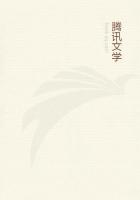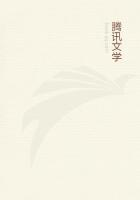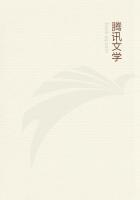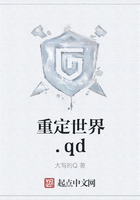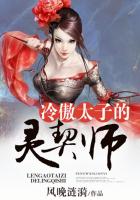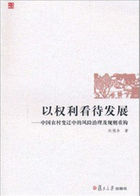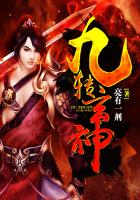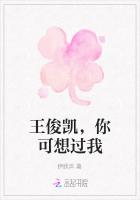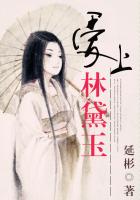Florence continued in disunion and disturbance. The dissensions continued among the party of Cosmo, in 1455, from the causes already related, which by his prudence, as we have also before remarked, he was enabled to tranquilize; but in the year 1464, his illness increased, and he died. Friends and enemies alike grieved for his loss; for his political opponents, perceiving the rapacity of the citizens, even during the life of him who alone restrained them and made their tyranny supportable, were afraid, lest after his decease, nothing but ruin would ensue. Nor had they much hope of his son Piero, who though a very good man, was of infirm health, and new in the government, and they thought he would be compelled to give way; so that, being unrestrained, their rapacity would pass all bounds. On these accounts, the regret was universal. Of all who have left memorials behind them, and who were not of the military profession, Cosmo was the most illustrious and the most renowned. He not only surpassed all his contemporaries in wealth and authority, but also in generosity and prudence; and among the qualities which contributed to make him prince in his own country, was his surpassing all others in magnificence and generosity. His liberality became more obvious after his death, when Piero, his son, wishing to know what he possessed, it appeared there was no citizen of any consequence to whom Cosmo had not lent a large sum of money; and often, when informed of some nobleman being in distress, he relieved him unasked. His magnificence is evident from the number of public edifices he erected; for in Florence are the convents and churches of St. Marco and St. Lorenzo, and the monastery of Santa Verdiana; in the mountains of Fiesole, the church and abbey of St. Girolamo; and in the Mugello, he not only restored, but rebuilt from its foundation, a monastery of the Frati Minori, or Minims. Besides these, in the church of Santa Croce, the Servi, the Agnoli, and in San Miniato, he erected splendid chapels and altars;and besides building the churches and chapels we have mentioned, he provided them with all the ornaments, furniture, and utensils suitable for the performance of divine service. To these sacred edifices are to be added his private dwellings, one in Florence, of extent and elegance adapted to so great a citizen, and four others, situated at Careggi, Fiesole, Craggiulo, and Trebbio, each, for size and grandeur, equal to royal palaces. And, as if it were not sufficient to be distinguished for magnificence of buildings in Italy alone, he erected an hospital at Jerusalem, for the reception of poor and infirm pilgrims. Although his habitations, like all his other works and actions, were quite of a regal character, and he alone was prince in Florence, still everything was so tempered with his prudence, that he never transgressed the decent moderation of civil life; in his conversation, his servants, his traveling, his mode of living, and the relationships he formed, the modest demeanor of the citizen was always evident; for he was aware that a constant exhibition of pomp brings more envy upon its possessor than greater realities borne without ostentation. Thus in selecting consorts for his sons, he did not seek the alliance of princes, but for Giovanni chose Corneglia degli Allesandri, and for Piero, Lucrezia de' Tornabuoni. He gave his granddaughters, the children of Piero, Bianca to Guglielmo de' Pazzi, and Nannina to Bernardo Ruccellai. No one of his time possessed such an intimate knowledge of government and state affairs as himself; and hence amid such a variety of fortune, in a city so given to change, and among a people of such extreme inconstancy, he retained possession of the government thirty-one years; for being endowed with the utmost prudence, he foresaw evils at a distance, and therefore had an opportunity either of averting them, or preventing their injurious results. He thus not only vanquished domestic and civil ambition, but humbled the pride of many princes with so much fidelity and address, that whatever powers were in league with himself and his country, either overcame their adversaries, or remained uninjured by his alliance; and whoever were opposed to him, lost either their time, money, or territory. Of this the Venetians afford a sufficient proof, who, while in league with him against Duke Filippo were always victorious, but apart from him were always conquered; first by Filippo and then by Francesco. When they joined Alfonso against the Florentine republic, Cosmo, by his commercial credit, so drained Naples and Venice of money, that they were glad to obtain peace upon any terms it was thought proper to grant. Whatever difficulties he had to contend with, whether within the city or without, he brought to a happy issue, at once glorious to himself and destructive to his enemies; so that civil discord strengthened his government in Florence, and war increased his power and reputation abroad. He added to the Florentine dominions, the Borgo of St. Sepolcro, Montedoglio, the Casentino and Val di Bagno. His virtue and good fortune overcame all his enemies and exalted his friends. He was born in the year 1389, on the day of the saints Cosmo and Damiano. His earlier years were full of trouble, as his exile, captivity, and personal danger fully testify; and having gone to the council of Constance, with Pope John, in order to save his life, after the ruin of the latter, he was obliged to escape in disguise. But after the age of forty, he enjoyed the greatest felicity; and not only those who assisted him in public business, but his agents who conducted his commercial speculations throughout Europe, participated in his prosperity. Hence many enormous fortunes took their origin in different families of Florence, as in that of the Tornabuoni, the Benci, the Portinari, and the Sassetti. Besides these, all who depended upon his advice and patronage became rich; and, though he was constantly expending money in building churches, and in charitable purposes, he sometimes complained to his friends that he had never been able to lay out so much in the service of God as to find the balance in his own favor, intimating that all he had done or could do, was still unequal to what the Almighty had done for him. He was of middle stature, olive complexion, and venerable aspect; not learned but exceedingly eloquent, endowed with great natural capacity, generous to his friends, kind to the poor, comprehensive in discourse, cautious in advising, and in his speeches and replies, grave and witty. When Rinaldo degli Albizzi, at the beginning of his exile, sent to him to say, "the hen had laid," he replied, "she did ill to lay so far from the nest." Some other of the rebels gave him to understand they were "not dreaming." He said, "he believed it, for he had robbed them of their sleep." When Pope Pius was endeavoring to induce the different governments to join in an expedition against the Turks, he said, "he was an old man, and had undertaken the enterprise of a young one." To the Venetians ambassadors, who came to Florence with those of King Alfonso to complain of the republic, he uncovered his head, and asked them what color it was; they said, "white": he replied, "it is so; and it will not be long before your senators have heads as white as mine." A few hours before his death, his wife asked him why he kept his eyes shut, and he said, "to get them in the way of it." Some citizens saying to him, after his return from exile, that he injured the city, and that it was offensive to God to drive so many religious persons out of it; he replied that, "it was better to injure the city, than to ruin it; that two yards of rose-colored cloth would make a gentleman, and that it required something more to direct a government than to play with a string of beads." These words gave occasion to his enemies to slander him, as a man who loved himself more than his country, and was more attached to this world than to the next. Many others of his sayings might be adduced, but we shall omit them as unnecessary. Cosmo was a friend and patron of learned men. He brought Argiripolo, a Greek by birth, and one of the most erudite of his time, to Florence, to instruct the youth in Hellenic literature. He entertained Marsilio Ficino, the reviver of the Platonic philosophy, in his own house; and being much attached to him, have him a residence near his palace at Careggi, that he might pursue the study of letters with greater convenience, and himself have an opportunity of enjoying his company. His prudence, his great wealth, the uses to which he applied it, and his splendid style of living, caused him to be beloved and respected in Florence, and obtained for him the highest consideration, not only among the princes and governments of Italy, but throughout all Europe. He thus laid a foundation for his descendants, which enabled them to equal him in virtue, and greatly surpass him in fortune; while the authority they possessed in Florence and throughout Christendom was not obtained without being merited.
同类推荐
热门推荐
以权利看待发展:中国农村变迁中的风险治理及规则重构
本书共九章,主要内容有:权利扩张与规则重构、农村土地产权制度关系中农民权利的变化、农村社会养老保障制度发展的挑战与实验、乡村发展中的公共性及其风险等。正能量:正向心态带来非凡的成功
《正能量:正向心态带来非凡的成功》为美国最畅销的十大心理自助经典之一。简单应用,即获能量,这个时代最值得一看的心灵励志读物,改变你心智力量的最佳读本。从今天开始,掌握并积攒正能量,你的生活将会发生翻天覆地的变化。到底什么是正能量?科学的解释是:以真空能量为零,能量大于真空的物质为正,能量低于真空的物质为负。在此书中,正能量指的是一切予人向上和希望、促使人不断追求、让生活变得圆满幸福的动力和感情。不可思议的有趣启示,有求必应的美妙体验!屈远志:书中躺着整个过去的灵魂
他有着凄惨的身世,虽被人收养,但却遭遇受辱、恋爱失败,他外出求学归来时已是翩翩少年,但却展开了自己疯狂的报复;他是平民之子,因犯下滔天之罪,为躲避祸事远走他乡,但却在风云搅动的21世纪,一步步走向国际大舞台;他成为了人民心中的大英雄、大豪杰,成为了整个人类的希望……然而,有一天,当他站在万众瞩目的高台上时,一个声音却高叫了起来:“看啊,他就是不肖子‘商明珠’!”【作者已出版作品《丛林有公主》《灵魂不死》,作者微信公众号:qyz_book】

